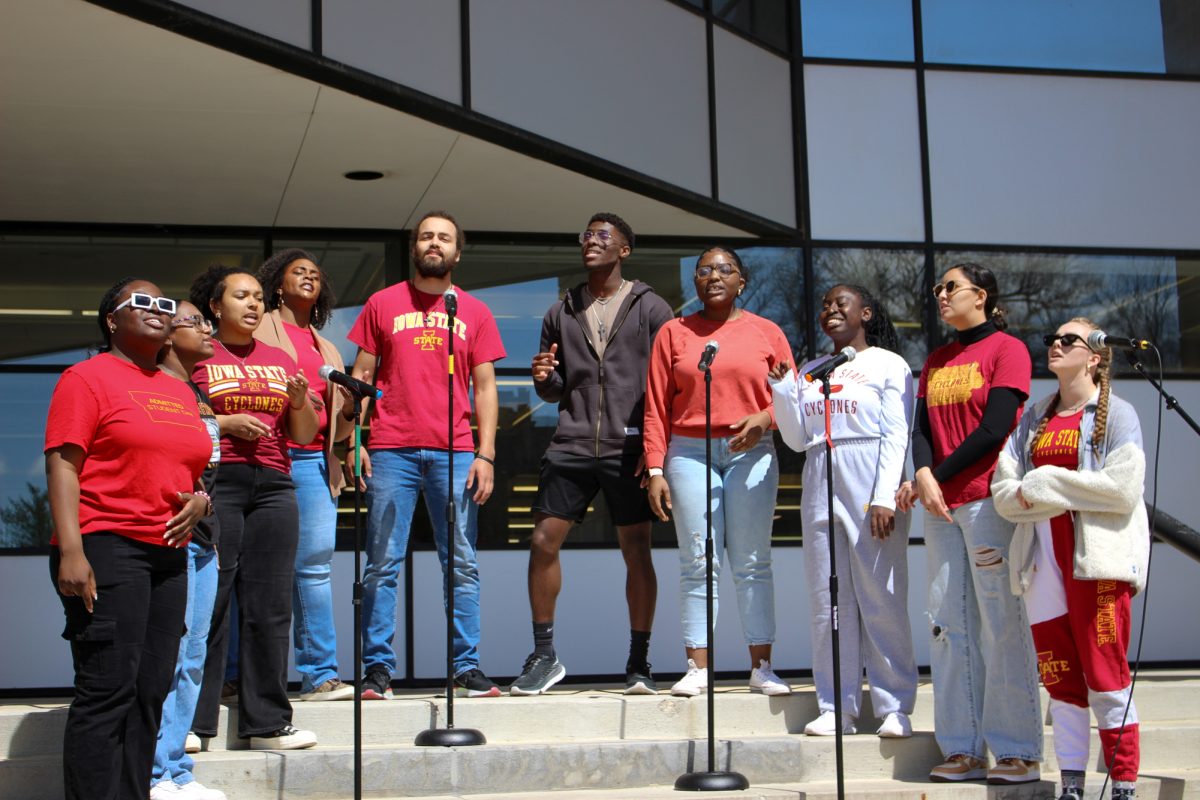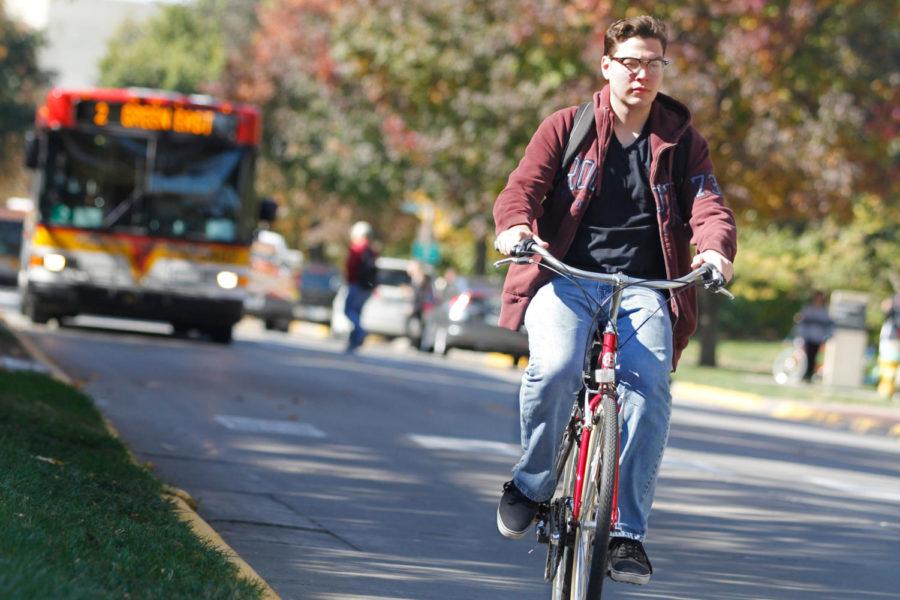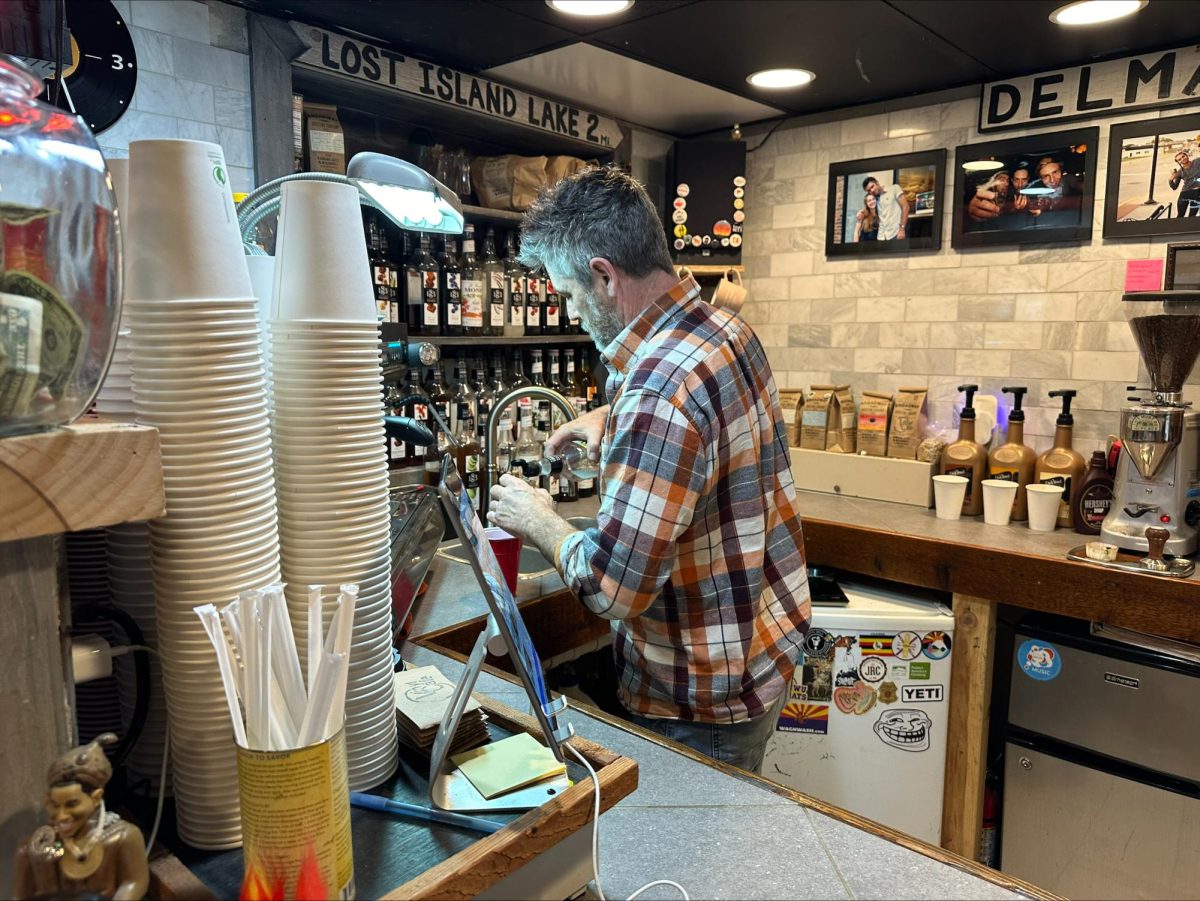Brock Elbert is a graduate of Iowa State University with a bachelor’s degree in genetics. He is Iowa-born and grew up in the small town of Indianola, a town that owns 11 miles of land.
Indianola is home to Simpson College, museums and around 15,000 residents. However, Indianola and neighboring cities fail to have career opportunities for Elbert.
Elbert traded in his Cyclone cardinal and gold for a career in Alabama in the field of genetics.
“A big part of it is the job I want to do doesn’t really have positions in Iowa, and the grad programs I’m interested in aren’t at either of the big Iowa schools,” said Elbert.
This phenomenon, common for many Iowan students, is known as the ‘brain drain.’ In the United States, this looks like well-educated students leaving their home state to pursue higher education and careers elsewhere.
The brain drain is particularly prevalent in Iowa, as each of its neighboring states has a higher retention rate, according to the Washington Post. When comparing college graduates produced in a state versus college graduates living in the state, Iowa falls negative, sitting at -34.2%
This statistic took the percentage of college graduates produced in Iowa against the percentage of college graduates living in Iowa, meaning that Iowa is losing over 34% of the college graduates produced in the state.
This phenomenon happens for various reasons, including less interest in rural communities, lower-paying jobs, lack of opportunities and fewer amenities and attractions, amongst others.
John Winters, a professor in economics at Iowa State University, believes the struggle to find careers in Iowa is why the brain drain is especially prevalent.
“If you take a very small, either physically smaller or small in terms of the population and look at employment, it’s gonna be harder for people to find good matches within that area, and they’re more likely to look outside,” Winters said.
For Iowa State graduate Noah Imhoff, who is pursuing aerospace engineering, this was the case.
“Of course, Iowa is not the central hub for aerospace companies, so it’s like I have to move,” Imhoff said. “If I had to choose, I wouldn’t choose to move.”
Imhoff is pursuing a career in Columbus, Georgia, which is nearly three times larger than Ames.
Imhoff said he believes aerospace engineering is nearly impossible to pursue in his home state.
“There are very few aerospace positions in Iowa,” Imhoff said. “If you work in aerospace in Iowa, it’s going to be at Collins [Aerospace] in Cedar Rapids. You’re really limited to that if you want a successful career in my field.”
Imhoff also said that finding entry-level positions that he was interested in was especially hard to do in Iowa.
“There are so many opportunities everywhere else that I don’t think it’s realistic to expect to be here in Iowa,” Imhoff said.
Iowa State Career Adviser Elizabeth Hergert echoed that career pressure is a contributing factor to students leaving Iowa.
“I think we get this idea in our head that if we’re not working with the best company out there, we’re not going to be happy,” Hergert said.
Rural communities in Iowa have taken the biggest blow from the brain drain as they struggle to offer economic advantages and amenities to young adults.
“Iowa is not doing great, but they’re not doing terrible,” Winters said. “Rural areas, on the whole, are struggling more.”
Winters said that to work in a rural area, you would likely have to limit your career options.
“So in rural economies, right, if you really want to work in a rural area, oftentimes your job opportunities are limited,” Winters said. “You could be a teacher, you can be in health care […] nursing, you know, like very specialized health care, there may not be opportunities, but teaching health care and then agriculture.”
This is evident in Iowa, as census data shows that population decline is most evident in rural communities.
“Des Moines is a fairly attractive place to a lot of young people,” Winters said. “Des Moines has been growing in population and jobs, and some of the other areas, to varying extents. But again, the rural areas are certainly facing more brain drain, more exodus of young people, especially young, educated people.”
For many young people, such as Imhoff, urban areas are more desirable for their diversity.
“Iowa is a very red state,” Imhoff said. “I definitely don’t appreciate our governor and the way our state leadership acts, especially towards those of different genders or sexualities. I have a lot of friends that are gay or bi or, you know, a part of the LGBTQ community. It’s just not cool, the way they are treated here politically.”
Comparatively, Elbert was looking to leave rural Iowa regardless of career opportunities.
“I think I’d like, at least for a little bit, to experience different things,” Elbert said.
Winters said that due to the changing concept of urban living, a social lifestyle might also be more attractive to young people.
“Urban areas often have more diverse amenities, especially socially,” Winters said. “You get to meet more people. And often, if you have some kind of specialized interests, or hobbies, or taste or whatever, you can find people that are similar to yourself, whereas, in a small area, you may be the only person interested in a specific thing.”
Urban communities are also 12% less likely to have married young adults (25-34) than their rural counterparts, according to the Pew Research Center.
Winters believes that rural communities’ appeal to families can be unappealing to young people, as the age for first marriages and children continues to rise in the younger generations.
“The age at which people first marry, have their first child, has increased,” Winters said. “So, this idea of getting married young and having kids young meant you were probably going to marry somebody that you met in high school or college. Now, very often, people are meeting people to settle down with much later in life; […] a bigger city has more job opportunities, but a bigger city also has more potential dating or marital partners.”
Due to this migration of young, educated adults into the cities, rural communities are struggling economically.
“Local governments are not built to shrink,” Winters said. “They often invest very heavily in infrastructure. They borrow infrastructure, you know, roads, sewers, etc. And then they more or less expect that they’re going to pay back those routes in the future with either a stable or growing population.”
When the population declines, this causes increased taxes in rural communities or less spending on amenities in their communities, making them even less desirable to young people.
Winters said that due to the surplus of agricultural jobs in these rural areas, it could become complex to pursue careers in STEM (science, technology, engineering and mathematics).
“Of course, if you’re looking to get ag-science, it’s very easy to get an ag-science– I’m talking about something like mechanical engineering and you want to work for John Deere,” Winters said. “A lot of great options.”
The downside is the lack of job opportunities in other technology-based industries.
“Now, if you want to work on cutting-edge AI (artificial intelligence), I don’t actually know that there’s a lot of employers,” Winters said. “A lot of these jobs are not in Iowa, and a lot of other computer science jobs that are not agriculture or finance are elsewhere.”
In her work with career advising, Hergert has also seen a specific struggle among students pursuing STEM fields who want to work in their home state.
“Especially with computer science students, they want to be on the West Coast where all the innovation is happening,” said Hergert.
As Elbert departs from Iowa for more opportunities and innovation in the field of genetics, he hopes to complete graduate school and get a competitive job as a genetics counselor.
“I think the bigger areas are bound to have more opportunities, and the schools I’m applying to will be good for my career in the long run,” Elbert said.















Paul | Sep 15, 2023 at 7:32 am
COVID Kim’s desire to return to the 1950’s is encouraging college graduates of all ages to flee the state
Matt | Sep 13, 2023 at 8:09 am
I am originally from Pennsylvania and graduated from ISU in 1985. I currently live in Mississippi. After Hurricane Katrina I considered moving to Iowa, I love the state. However, my wife is a southern girl and when she saw the winter temperatures, that was that.
John | Sep 12, 2023 at 10:11 pm
I think another takeaway from this article is that Iowa still has many high quality colleges and universities. That’s definitely a positive.
John R | Sep 13, 2023 at 10:53 pm
I have to wonder for how long? With Ms Reynolds so chummy with DUHSantis, how long before she starts picking up his bad habit of sticking his nose in where it does not belong?
Joe | Sep 12, 2023 at 10:36 am
An insightful piece.
Hopefully leaders from all fields read this.
It is imperative (in my experience) to get outside one’s comfort zone. Living in other cities, states, and/or countries can help with knowing one’s self. Iowa has the best economy I have lived in. The pay to cost of living differential is wonderful. We would be wise to remember if we’re not content, then we will never be happy.
Thank you for your time.
Yves | Jan 14, 2024 at 9:47 pm
The minimum wage in Iowa is $7.25, so when you say the cost of living differential is wonderful, you’re speaking to something not borne out in the article: “If you take a very small, either physically smaller or small in terms of the population and look at employment, it’s gonna be harder for people to find good matches within that area, and they’re more likely to look outside,” [professor] Winters said.”
Amanda | Sep 12, 2023 at 10:05 am
I don’t know a single kid in my sons sophomore class who is planning on staying in Iowa for college or post college life. Iowa is not a good place to live for quality of life or income
Chuck | Sep 12, 2023 at 1:37 pm
In your opinion.
Lora | Sep 14, 2023 at 6:43 am
I have to echo her feelings. My youngest daughter moved to california and basically says she’s never coming back. The opportunities for young people especially women here in the state are abysmal. If a woman feels like her body has less rights than a gun, then you know she’s going to leave and find something better.
Matt | Sep 14, 2023 at 7:25 pm
It’s not new. I graduated from ISU in 1980 and more than half of my friends left the state then. And that was before the last forty years of relentless destruction of the rural social fabric; railways closed and pulled up their tracks, stranding elevators. Churches wither and die. Schools consolidate and the new school is built between the original towns so now it’s not walkable for anyone. Stores close. Farms sell and consolidate. What is attractive about rural Iowa? It’s not just Iowa, BTW, same is happening up here in Minnesota.
L Jones Gephardt | Sep 12, 2023 at 8:48 am
Diversity of thought and background are keys to a strong social and economic fabric. Like democracy, diversity is challenging and can cause a mess. But that mess has to be more desirable than the economic destitution created by an uninclusive mindset. The brain drain is the fear-mongers reaping what they sow. That said, the divisions between “city” and “country” only serve those in power (at both ends of the political spectrum). A partial solution: ranked-choice voting and the abolishment of the Electoral College. Otherwise, this is not a true democracy. How could it be when most everyone from either side of the aisle is in the pockets of corporate America?